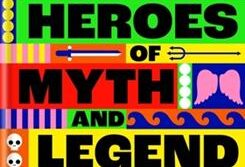 Call Me by Your Name
Call Me by Your Name
Directed by Luca Guadagnino
U.S. Distributor: Sony Pictures Classics
Call Me by Your Name
by André Aciman
Farrar, Straus and Giroux (2007)
256 pages, $17.
“I THOUGHT the theater would be a gay bar,” I told the friend waiting for me when I got to the E Street Cinema in Washington D.C. to see the much talked about film of André Aciman’s novel Call Me by Your Name. But the audience was more mixed. Not since Brokeback Mountain came out in 2005 has there been so much praise for a film about same-sex desire.
But what a difference twelve years make! With Call Me by Your Name, we’ve gone from the depiction of two American shepherds dealing with external and internal homophobia, unforgiving fathers, and a life spent mostly in the saddle, to a villa in northern Italy owned by a family that dines al fresco, speaks three languages, and listens to the teenage son play transcriptions of Bach on the piano: the European idyll that many educated Americans—particularly academics—hold in their hearts.
The film begins when a cultivated Jewish family welcomes a graduate student from the United States to assist the father in his research into ancient Greek sculpture. Instead of fist fights in bars, Oliver challenges his mentor over the etymology of the word “apricot.” But this isn’t the most important difference. In Brokeback Mountain, all the fathers were homophobic, cruel, and rejecting. In Call Me by Your Name, the paterfamilias’ speech to his son on the subject of his first love is widely regarded as the best moment in the film; a soliloquy replete with compassion, wisdom, and understanding. But then, this film arrives in a cultural landscape in which homosexuality is no longer the taboo it once was; in fact, it has been superseded by transgender issues (whose bathroom is this?) and gender fluidity.
And yet, Call Me by Your Name seems far more old-fashioned than Ang Lee’s film of Annie Proulx’ short story about homosexual shepherds.
Andrew Holleran’s fiction includes Dancer from the Dance, Grief, and The Beauty of Men.




